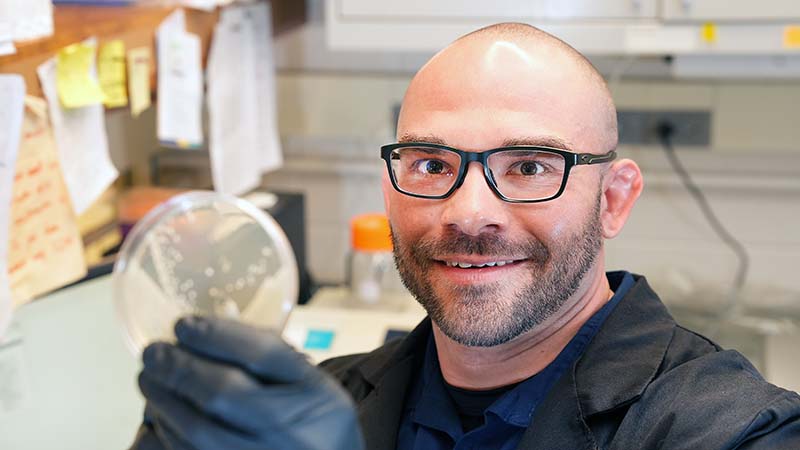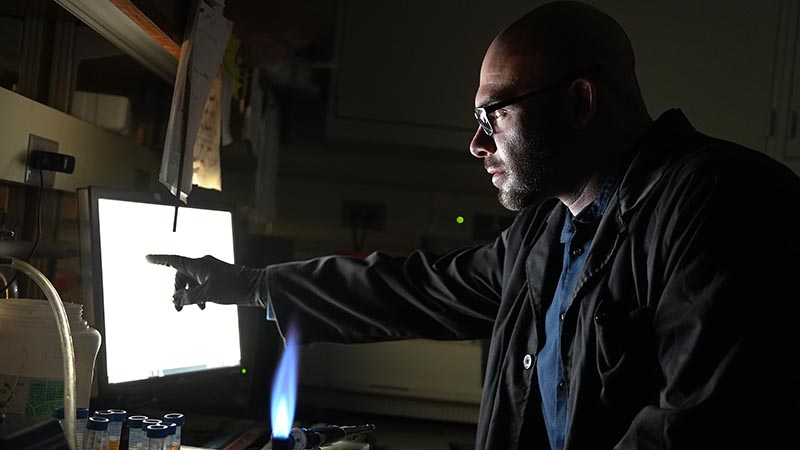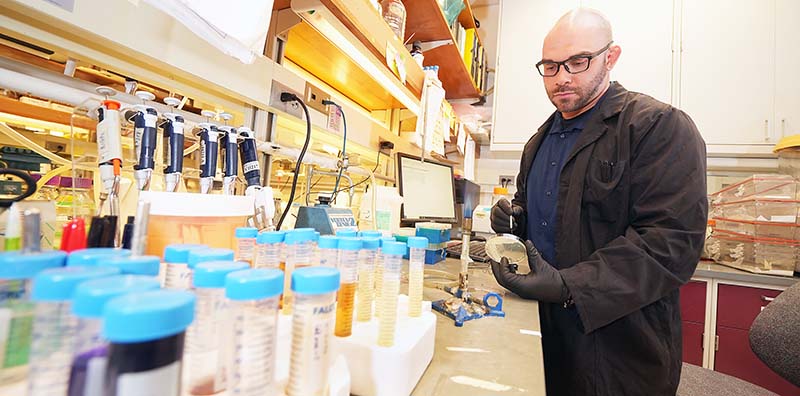Nicholas Gallina - Graduate Ag Research Spotlight
I’ve essentially switched my discipline in Microbiology three times, and I think that’s made me a very well-rounded scientist.
- Nicholas Gallina, PhD student, Department of Food Science
The student
If it’s one thing Nick Gallina knows, it’s the value of perseverance. Growing up in Griffith, Indiana, Gallina overcame a developmental disorder that made academics challenging until science “clicked” in high school. Two TV shows — the infectious disease documentary Monsters Inside Me and the medical drama House — sparked Gallina’s interest in studying microbiology at Indiana State University. But he was diagnosed with type 1 diabetes in the second semester of his freshman year. A lengthy hospital stay due to slight organ failure led to years of adjustment to the disease, which delayed his graduation — with honors. He stayed on at ISU to complete a master’s degree under Kathleen Dannelly, the same professor who welcomed him into her lab the second week of his freshman year. “I originally wanted to be an infectious disease pathologist, kind of like Dr. House,” Gallina says. “Then I realized I would much rather pursue a PhD instead of an MD.” His research at ISU had focused on pathogens, specifically MRSA (methicllin-resistant Staphylococcus aureus). To learn more about food microbiology, he then worked at Mérieux NutriSciences under Silliker Labs for a year to acquire skills and techniques in that field. “That’s how I found Dr. Bhunia, a well-authored, well-known professor of food microbiology,” he recalls. Gallina came to Purdue and the lab of Arun Bhunia, professor of food science, in 2019, where he learned that his research focus would change again, this time to probiotics. Gallina says of his advisor, “If you work, he’ll put in ten times the amount of effort. That is one of the many reasons why I enjoy working for him.”
The research
“I study Crohn’s disease and colitis in mice, and we use probiotics to remediate the disease,” Gallina says. In these digestive diseases, the body expresses a lot of one type of protein, heat shock protein 60 (Hsp60), and inflammation, he explains. His research focuses on a common probiotic that is genetically modified to express an enzyme from another bacteria. “The cool thing about this enzyme is, when we plug it in to this Lactobacillus probiotic, we can suppress inflammation because the enzyme adheres to Hsp60. This allows the probiotic to have close contact with the cells of the gastrointestinal tract. Because of that interaction, the probiotic can be more beneficial.
Opportunities
Gallina has enjoyed teaching throughout his academic career, including four times at Purdue. “This material can be very challenging. I love to see when a student ‘gets’ something you’re trying to explain,” he says. He has attended five conferences and received the Outstanding Student Poster Award at the 2023 American Society for Microbiology Annual Meeting. He also has been the graduate student representative for the Interdepartmental Food Science Graduate Program, served on safety committees and has mentored numerous undergraduate students.
Future plans
When he completes his PhD, Gallina intends to work in industry. He also is looking forward to finally leaving academia: “I’ve worked a long time to get to this position,” he says. “I just want to relax and start enjoying life.” That will include bass fishing and football games, which he currently attends with Bhunia, other professors and his fellow graduate students. He also enjoys spending time in the gym and his service as a deacon in his church.





